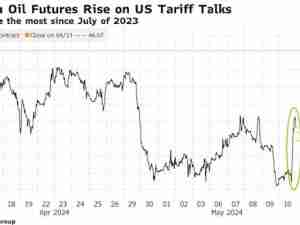But some trade and legal experts are still asking whether the issue is truly over.
Officials in Washington insist the recent US-Canada softwood lumber deal, which is supposed to last for seven years, will keep the peace.
"We fully expect this is going to go the distance," said one official at Office of the US Trade Representative, asking to remain anonymous.
The centerpiece of the deal signed in September is the refund of $4.3 billion in duties Canadian firms have paid in recent years to ship lumber to US markets. By Oct. 30, those firms already had recouped about a quarter of the award.
The deal also required the United States to halt import duties it for years claimed were needed to offset what it called Canada's unfair state support of its lumber industry.
"I'm fairly confident that at the end of the (seven years) we will actually have normal cross-border industry," said Gary Hufbauer, a trade expert at the Institute for International Economics.
But some trade-watchers and lawyers are more cautious.
"'Over' is the wrong word ... Both sides are accepting a less-than-an-ideal outcome in exchange for a few years of quiet on the northern front," said Ed Lebow, a lawyer who represented a small group of US lumber producers who were not directly involved in the US-Canada litigation.
"My sense is that the Canadian side entered into this agreement ... because they wanted some peace and quiet, so I expect there at least to be a pause," he added.
Lawsuits declared moot
The lumber deal is also supposed to stop years of legal battles fought over the years at the World Trade Organization, the US Court of International Trade, North American Free Trade Agreement panels, and elsewhere.
The deal is touchy on both sides of the border. Officials had to revise it, in fact, and delay implementation last month because they couldn't fulfill a requirement that all lawsuits be dropped -- a clause officials said proved impossible.
Some lawyers say those cases are far from over.
Attorney Elliot Feldman, who has represented a raft of Canadian firms like Tembec Inc., is involved in a case brought by a US industry group called the Coalition for Fair Lumber Imports, which alleges decisions from dispute settlement panels set up under the North American Free Trade Agreement (NAFTA) were unconstitutional.
His Canadian clients believe the panels are constitutional, but want a DC court to rule on them. "We want decisions and do not believe the cases are moot," Feldman said.
Viji Rangaswami, a trade analyst at the Carnegie Endowment for International Peace, said a ruling against the NAFTA panels' authority could set a precedent for other trade cases.
She was also more circumspect in general about the deal. "It's conceivable this has a two-year lifespan," she said.
The deal comes as the region's lumber industry slows along with the US housing market. At times like these, the lumber deal requires Canadian provinces to impose a tax on lumber shipments to the United States, to limit exports, or both.
In addition to the duty refunds for Canadian firms, the deal also gives $500 million to the US coalition's members.
The remaining $500 million helps community development programs and sets up a binational council that will propose changes to Canadian provinces' management of wood industries.
The Canadian parliament still needs to pass a law to allow the export quotas the deal requires. That is expected to happen in December or January. (Reuters)









